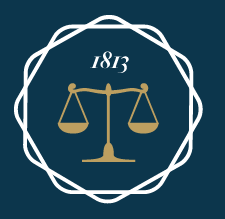Roundup of House Judiciary Committee's PACER Review

The House Judiciary Committee held a hearing today on the topic of the "the effectiveness of the PACER service and use of audio and video recordings of courtroom procedures." Three witnesses were invited by the committee to speak at the hearing, including our board member, Thomas Bruce, who spoke at length on the topic of reforming the PACER system. His written testimony can be found here.
Bruce framed his testimony by providing an overview of the things that PACER is and is not. In his words, these are the characteristics that define PACER:
- First, PACER charges fees for access to public records.
- Second, PACER became outmoded two years after it was built, and in some ways has never caught up.
- Third, PACER suffers from a split personality. On one hand, it is an electronic filing and case management system that supports the Federal courts [...]On the other [...] it is a data publishing system that offers the work of the Federal courts, both documents and metadata, to a very wide range of people[...]
And these are the things, in his words, that it is not:
- It is not transparent in its business model or operations.
- PACER is not an adequate facility for research on the activities of the Federal courts.
- PACER is not an effective protector of privacy.
- PACER is not an adequate vehicle for citable legal research.
After explaining these issues, Bruce suggests the following changes:
- Fees need to be removed as quickly as possible.
- The details of PACER’s operations and business model need to be far more visible to the Congress and to the public.
- The users of PACER's data-publication services need representation in the planning and design processes.
- PACER'S data-publishing activities should move to a new home.
In his final point, Bruce suggests that FdSys should be the new home for all of PACER's content, and that:
[U]ltimately all public data in PACER should be published in formats that encourage its use, using apparatus that facilitates use in bulk.
In a separate statement for the record to the Committee, Jonathan Zittrain, faculty director and Vice Dean of Library And Information Resources at Harvard Law Library, discussed the importance of and need for public access to court decisions. Included in his statement is a proposed modification to the E-Goverment Act of 2002 that would compel each federal court to provide on their website:
Access to the substance of all written opinions issued by the court, regardless of whether such opinions are to be published in the official court reporter, in a text searchable and machine-readable file format that is citable using a vendor-neutral and medium-neutral citation system.
(Proposed additions in bold italics.)
He also proposed the following addition to the section on "Maintenance of Data Online":
(3) BULK ACCESS.--All written opinions made accessible on each website under subsection (a)(5) shall also be made available to the Government Printing Office, which shall provide them to the public for bulk download.
In addition to their testimony, we have also heard from The Internet Archive, which is offering to host the entirety of PACER for free, and from Carl Malamud, who is sharing his testimony from 2015 (which still stands). The video from the hearing is on YouTube, Sarah Jeong has done an able job of live tweeting the hearing, and Parker Higgins has a post on Techdirt, where he argues that it's time to open up PACER.
For our part, we agree with nearly all of the testimony about PACER that we've been a source for, read, and heard today. As we've explained numerous times, opening up PACER is vitally important. Academics, journalists, the judiciary and the public, all deserve access to the raw workings of the judicial branch. The raw materials should be free, high quality, available in bulk, and should have a system of citation that doesn't rely on a commercial third party vendor. There has never been a better time to review this system, and we hope that the House Judiciary Committee will hear these arguments and take swift action upon them.